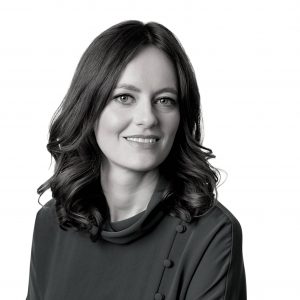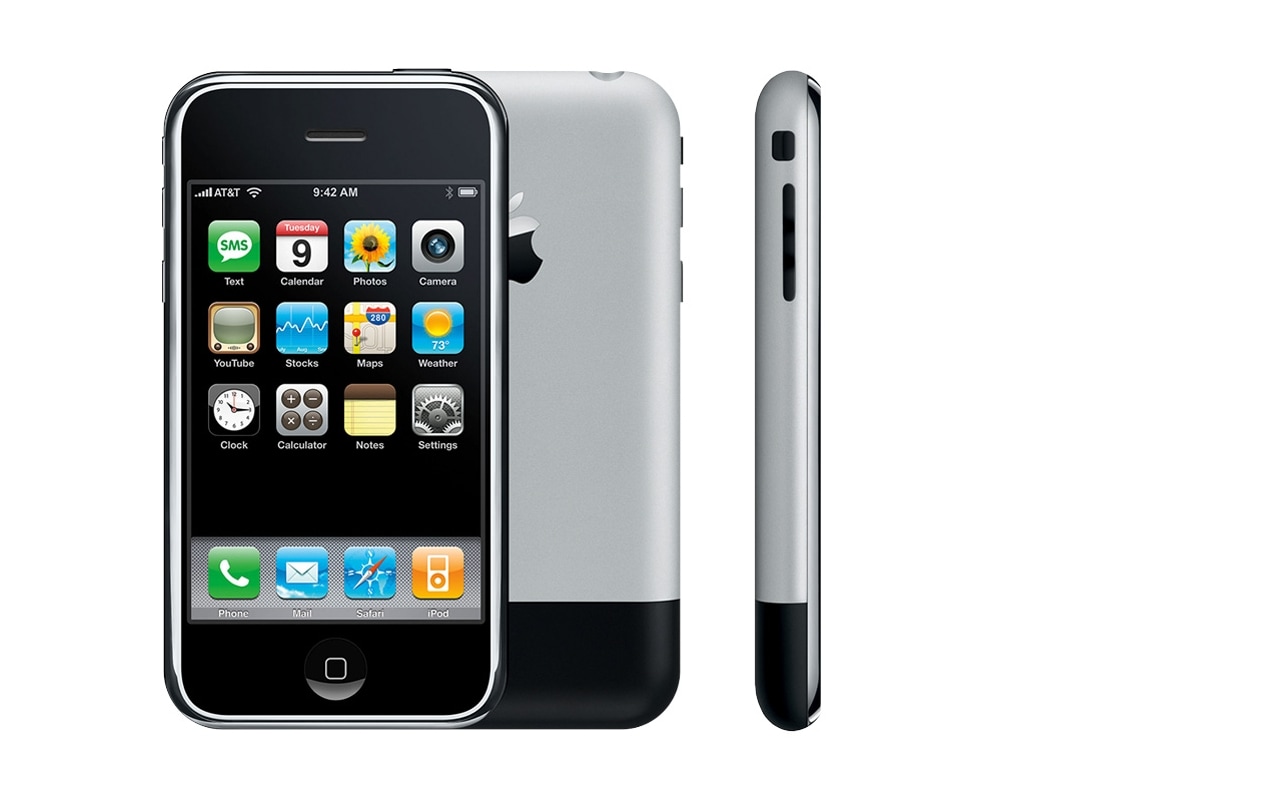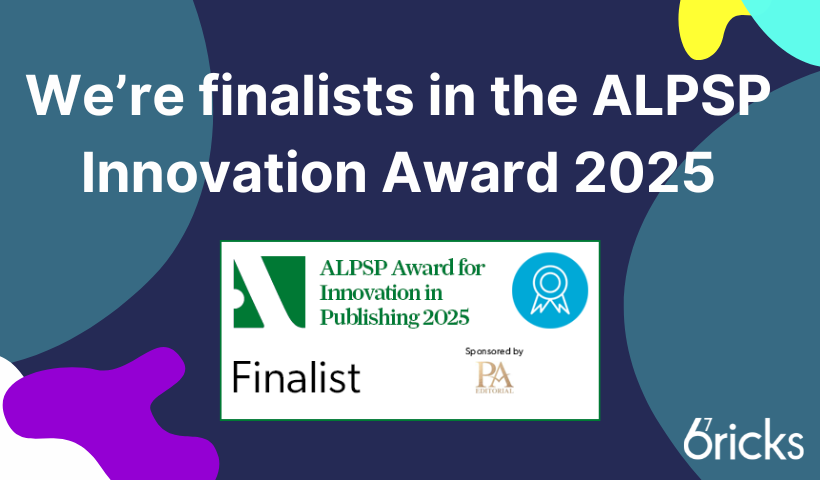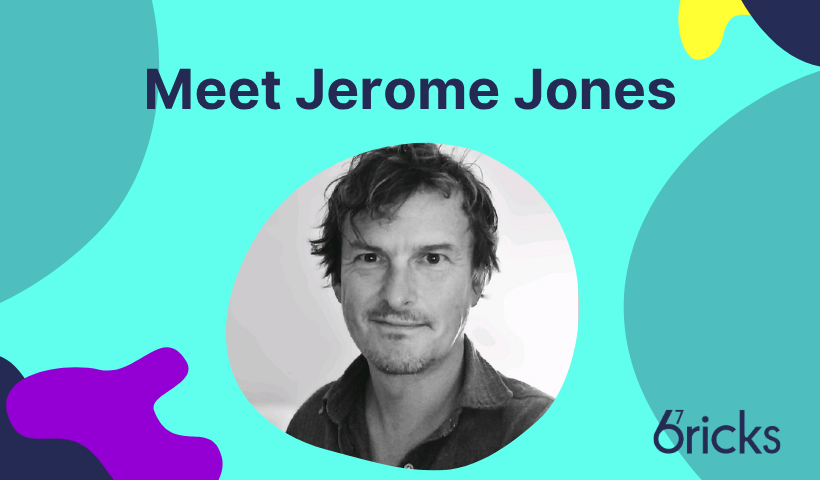As part of our 15th anniversary series, we sat down with Jennifer Schivas and David Leeming, the MD and Delivery Director of 67 Bricks respectively, to talk about the future of the company and their thoughts on the direction of our industry.
We’re several months in now from you taking on the running of the company from Sam and Inigo, it’d be great to hear a bit more from you both about your future vision for 67 Bricks. Firstly, as you know 67 Bricks is celebrating 15 years in business this year. How do you think the company will evolve over the next 15 years?

Jennifer
My dream is that we’ll be well established as the ‘go-to’ technology consultancy for innovators in the information industry. We’ll have enabled numerous publishers to evolve to a position where they can not only survive, but thrive, in the continuously changing, data-driven landscape.
We’re best known today in the UK and Europe, but our presence is already growing globally – we have clients in Canada, the US and Australia – and I would expect to see us becoming even more international in our partnerships over the next few years. The style of these partnerships will also naturally evolve – we have seen that we deliver the most value to our clients in long-term strategic relationships and I’d like to see more of these with information companies of all different types and sizes.
Finally, in terms of our internal landscape, we already have some of the most talented people in the information technology industry working for us, and we will continue to hire, nurture and promote the best talent. I hope some of our current team will be in more senior positions with us in 15 years’ time – perhaps answering these very questions again!
Jennifer has talked a bit about the evolving nature of our clients and partnerships – can you say a bit more about that, David?

David
I’m pleased to say that we are already working in a number of successful partnerships that have enabled our clients to digitally transform and deliver best-in-class products and services, and this is something we’ll see more of over the coming years.
The best partnerships for us are those where an organisation knows they need to reimagine their business but has no idea how to go about it or even what they need to be aiming for. They then allow us to go in and deliver their dreams, as opposed to trying to deliver on a predetermined outcome that may or may not be the right one for them in the long term.
I remember when we won the initial contract to work with our long-term partner ICLR, and at the time their feedback was that they selected us because we made them think differently about what they needed. When we started working together – initially to rebuild their platform – we had no idea that we would eventually go on to develop the revolutionary AI-driven product, Case Genie with them. It helps that we have the technical skills to follow up on those ideas quickly so we can execute developments in a way that makes a real impact for our clients in a decent timescale.
And looking forward, do you have a ‘dream’ engagement you’d like to work on in the future?
David
There’s no single ‘big fish’ out there we’re looking to land. For us, it’s more about the work itself and how close we can get to the clients and their requirements. So I’d say our ‘dream’ is to find information providers who know they have to do something to develop their business digitally but don’t have any preconceived ideas of how they should move forward. The best work happens when our clients bring all their domain and customer knowledge to the table and we bring our experience in navigating complex technological and cultural changes to make a true partnership that delivers for everyone.
So if there’s anyone out there reading this who’s thinking ‘It all sounds lovely, but how on earth do we get started?’ – don’t ponder those big questions alone! We regularly have virtual or in-person coffee catch-ups with people from all sorts of companies to talk through how digital transformation programmes can be started, and we have absolutely no interest in a hard sell or one-size-fits-all solutions. Instead, we focus on pairing our clients with our great team of industry and technical experts to find appropriate and future-proof solutions.
As you say, we’re lucky to have a great team who can realise these dreams for our partners. As the world and technology move on, what skills do you think will be more in demand?
Jennifer
I see a need for greater focus on being both customer-centric and commercially focussed – even for not-for-profit organisations having a ‘product mindset’ is increasingly important. This includes increased demand for digital product strategy, management and delivery, as well as skills such as UX and data science, which are both already becoming booming areas in our industry.
Technology is no longer just a cost centre or a solution provider, it is a core part of any business, and the information industry is no exception. AI and Machine Learning will increasingly be the ‘norm’ and so technologists will need to know how to wield those tools in an effective manner, looking out for hazards such as baking in bias. Something we already see at 67 Bricks is the power of hard coding skills when combined with softer skills such as communication, empathy and creativity – our software developers are creative problem solvers, collaborating within teams. Having technologists with an ability to be curious, flexible and with an interest in learning new things is absolutely key to the success of any engagement.
Leaders in the industry need to become a lot more comfortable with change; trusting and empowering our product and technology teams with the autonomy to make good decisions as well as to make mistakes, learn and iterate. When it comes to driving digital transformation as a leader, something we help our clients with again and again is fostering the right culture. This is just as important as your ability to set and implement strategy. I hope that we’ll see an increased move away from ‘command and control’ to a leadership style which is more devolved, agile, responsive and flexible.
On that note then, what do you think the industry will look like in another 15 years?
David
To start with, let’s look back to where the industry was 15 years ago. I was working at the Royal Society of Chemistry, we had just completed the digitisation of all their printed journals back to 1841 and we were starting to build a new platform to deliver all this content. At the time this was quite innovative even though it was essentially just taking the print product and putting it online. Since then, this approach to publishing online has developed a bit by adding lots of features in an attempt to make life better for the end-users but, in the end, it is just ‘print online’ with bells and whistles. We have made the experience for the user accessing content across multiple providers very difficult. It is time to change and think in a more user-centric way.
All of this boils down to publishers needing to evolve and move away from the traditional outputs they have been creating for decades and reinventing themselves into product companies – the need for traditional publishing outputs will likely be delivered by far fewer companies than we see now as that content market shrinks and is consolidated within fewer providers. Looking back 15 years ago it was hard to imagine all the changes to the space that we see now, and I’m certain in another 15 years it will be just as unrecognisable.
Finally, there’s been a lot of buzz recently about the metaverse, and I do think we’ll see some interesting trials attempted here. I’ve already seen innovations such as virtual research and experiments taking place, where information and data assets are shared and collaborated on between scientists spread across the world, and so I’m sure there’s plenty more of that to come.

Jennifer
The first iPhone launched 15 years ago, and back in 2007 we had no real concept of how far our expectations surrounding what we thought a phone could do would change, and just how different our lives would be as a result. My assumption is that we will see similar seismic shifts over the next 15 years, with big changes driven by technology, evolving user expectations and new “disruptors” entering our market. I think we will sadly see the demise of some well-known heritage publishers. Those information providers who fail to stay nimble, adapt, and reinvent themselves will simply cease to exist. That’s why we think our mission is so important now, to support content providers of all sizes and shapes to transition to this new world, regardless of where they’re starting from.
We’ve been talking about it for years at publishing conferences, but I do believe that long-form text-based articles will very soon no longer be the default output. Video, audio, code, early-stage research, and datasets that can be immediately re-used will better deliver the needs of users. We are already beginning to see that serving answers and insights at the point of need as opposed to expecting users to navigate and log into multiple and specific places will be the expectation. An intuitive, seamless user experience will be vital.
To thrive in a future like this – where let’s face it, so much is speculative and unknown – information companies need to treat their content as the data asset it is. That means ensuring it is structured and enriched in a way that makes for easy and intuitive repackaging, provision to third parties and ingestion into new products and services. They need to have control over their technology, the flexibility and agility to adapt to changing market conditions, and a culture of curiosity, continuous innovation, and experimentation.
All in all, there are plenty of opportunities for innovation for all information professionals, whether they be working for heritage publishers, data-heavy insight providers, or brand new start-ups tackling some of the newest opportunities to disrupt the way we consume content – or even redefining what ‘content’ is. So I’m confident that in 15 years we’ll have plenty of scope to still be doing what we do best – empowering our partners with the confidence to survive in a changing digital world.


